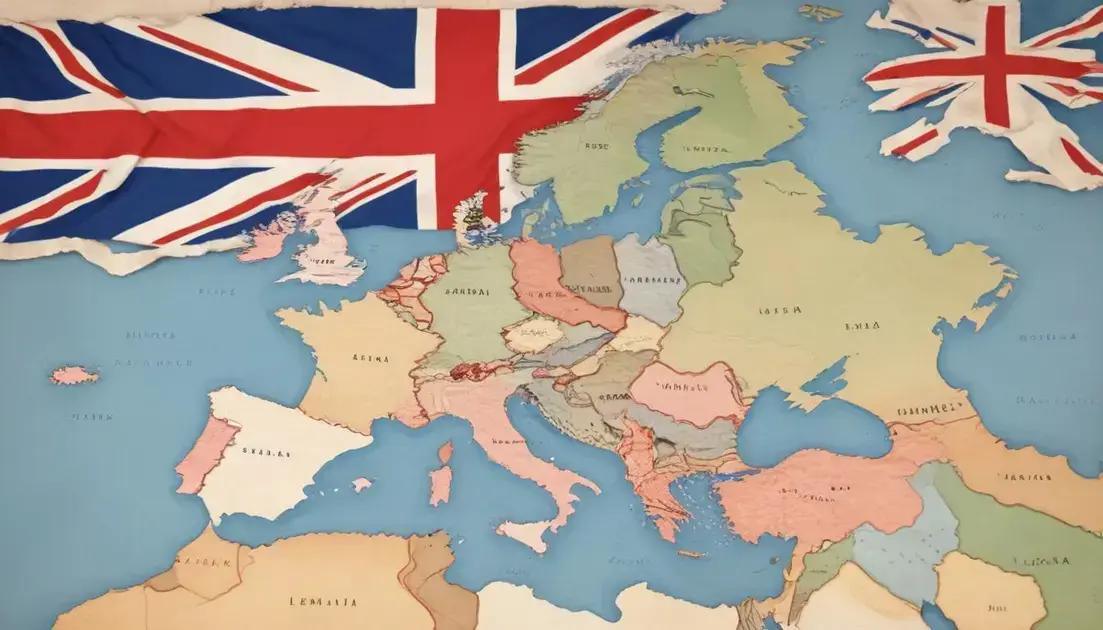
Partition of Africa: Berlin Conference and Colonialism
The Berlin Conference of 1884-1885 played a crucial role in shaping Africa’s modern history by formally dividing the continent among European powers without consideration for local populations. This led to significant political, economic, and social challenges, including ongoing conflicts, economic struggles due to resource exploitation, and cultural disruptions from colonial rule. Resistance movements arose as Africans sought to reclaim their rights and land, laying the groundwork for future independence efforts. The lasting effects of colonialism are evident today, impacting governance, economic inequality, and cultural identity across the continent.
Colonialism drastically reshaped Africa, as European powers divided the continent at the Berlin Conference, often ignoring local populations and their cultures. What does this mean for Africa today?
The Berlin Conference
The Berlin Conference was held in 1884 and 1885. It involved major European powers making decisions about Africa. The conference aimed to avoid conflict among these nations by establishing rules for colonization. However, it excluded African leaders and communities from discussions.
Goals of the Conference
One main goal was to divide Africa among European nations. Countries like Britain, France, and Germany competed for control of African territories. The conference set guidelines for how they could claim land. This process was meant to prevent wars between European powers over territories.
Key Decisions Made
During the conference, leaders agreed on the principle of effective occupation. This meant that a country had to demonstrate actual control over a territory to claim it. As a result, many African regions were quickly seized without regard for local populations.
Impact on Africa
The impact of the Berlin Conference was significant and long-lasting. European nations carved up Africa without considering cultural or ethnic boundaries. This caused deep divisions that continue to affect the continent today. Local communities were often forced into subjugation, losing their lands, resources, and autonomy.
The consequences of this conference are still felt. Countries were left with borders that do not reflect the diverse backgrounds of their populations. This has contributed to ongoing conflict and instability in many African nations.
Impact on African Societies
The impact on African societies from the Berlin Conference was profound and long-lasting. European powers divided Africa without consulting its people. This disregard for local cultures led to major disruptions in societies.
Displacement of Communities
Many communities were forcibly displaced from their lands. Families lost their homes and were often relocated to different areas. This caused confusion and unrest as people struggled to adapt to new surroundings.
Loss of Autonomy
During colonization, local leaders lost their power and influence. The new European rulers imposed foreign laws and customs. Traditional governance systems were dismantled, and many local beliefs were disregarded.
Economic Exploitation
The Berlin Conference also resulted in economic exploitation. European countries extracted valuable resources from Africa. This left many communities in poverty as wealth flowed out of the continent. Local economies suffered as they were reshaped to benefit the colonizers.
Cultural Changes
Colonial rule brought significant cultural changes. Missionaries introduced new religions and education systems. While some benefits came from education, many people felt their own traditions were under threat.
Today, many African nations continue to deal with these impacts. The legacy of colonialism affects social structures, economics, and cultural identities. Understanding this history is important for recognizing current challenges faced by African societies.
Resistance Movements
Resistance movements in Africa emerged as a response to European colonization. Many local groups fought back against foreign rule. They wanted to reclaim their rights and land.
Types of Resistance
Resistance took many forms. Some groups used armed conflict to challenge colonizers directly. Others employed nonviolent methods, like protests and strikes. Both approaches aimed to draw attention to injustices.
Notable Leaders
Several brave leaders rose to prominence during these movements. Figures like Samori Touré and Yaa Asantewaa inspired many to fight for independence. They united people around common goals, advocating for freedom and self-determination.
Impact of Resistance
Resistance movements often faced severe consequences. Many leaders were captured or killed. Despite this, their efforts planted the seeds for future independence. These movements showed that colonization could be challenged and weren’t without opposition.
Legacy Today
The legacy of these resistance movements is still relevant today. They remind us of the struggle for freedom and identity in Africa. It is important to acknowledge the sacrifices made by those who fought against oppression. Their stories continue to inspire new generations.
Lasting Effects of Colonialism
The lasting effects of colonialism are still visible in Africa today. When colonial powers divided the continent, they ignored traditional boundaries. This has led to cultural clashes and ongoing conflicts among different groups.
Political Instability
Many African nations struggle with political instability. Colonialism left behind weak governments and divided populations. This makes it hard for countries to achieve peace and unity. Many leaders face challenges from rival factions within their own borders.
Economic Challenges
Economically, colonialism resulted in a legacy of dependency. Many regions rely heavily on the export of raw materials. This dependence can stifle local industry and limit growth. Countries often have to import finished goods, which can be costly.
Cultural Impact
Culturally, colonialism affected local traditions and languages. Many people lost touch with their heritage. Some communities have worked hard to revive their cultures, but the effects of colonialism still linger.
Social Inequalities
Socially, colonialism created significant inequalities. Resources were often allocated unevenly, benefiting a select few. This led to economic disparities that persist today. Many communities continue to fight for equal opportunities and representation.
Despite these challenges, many African nations are striving for change. They work towards stability, growth, and a better future for their people. Understanding the lasting effects of colonialism is crucial for making progress.
Conclusion
In conclusion, the impact of the Berlin Conference and colonialism on Africa has shaped the continent in many ways. The struggles for independence, the resistance movements, and the lasting effects are vital parts of Africa’s story. Today, nations continue to deal with challenges that stem from this complex history.
Understanding this past helps us appreciate the resilience of African societies. As communities work towards a brighter future, it is important to recognize the lessons learned. These lessons can guide efforts for unity, growth, and recovery from the effects of colonization.
By acknowledging this history, we can support African nations in their journey towards peace and development, celebrating their rich cultures and diverse identities.


